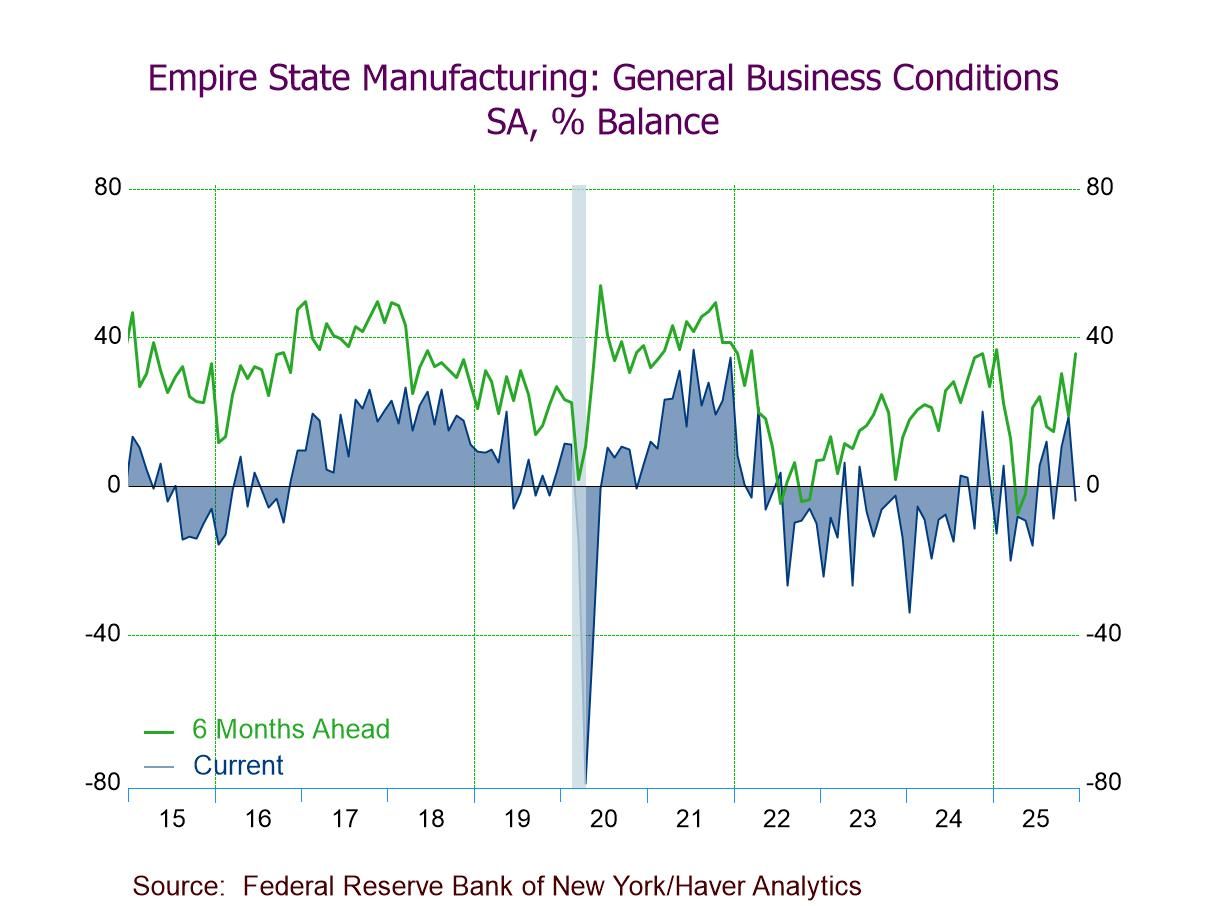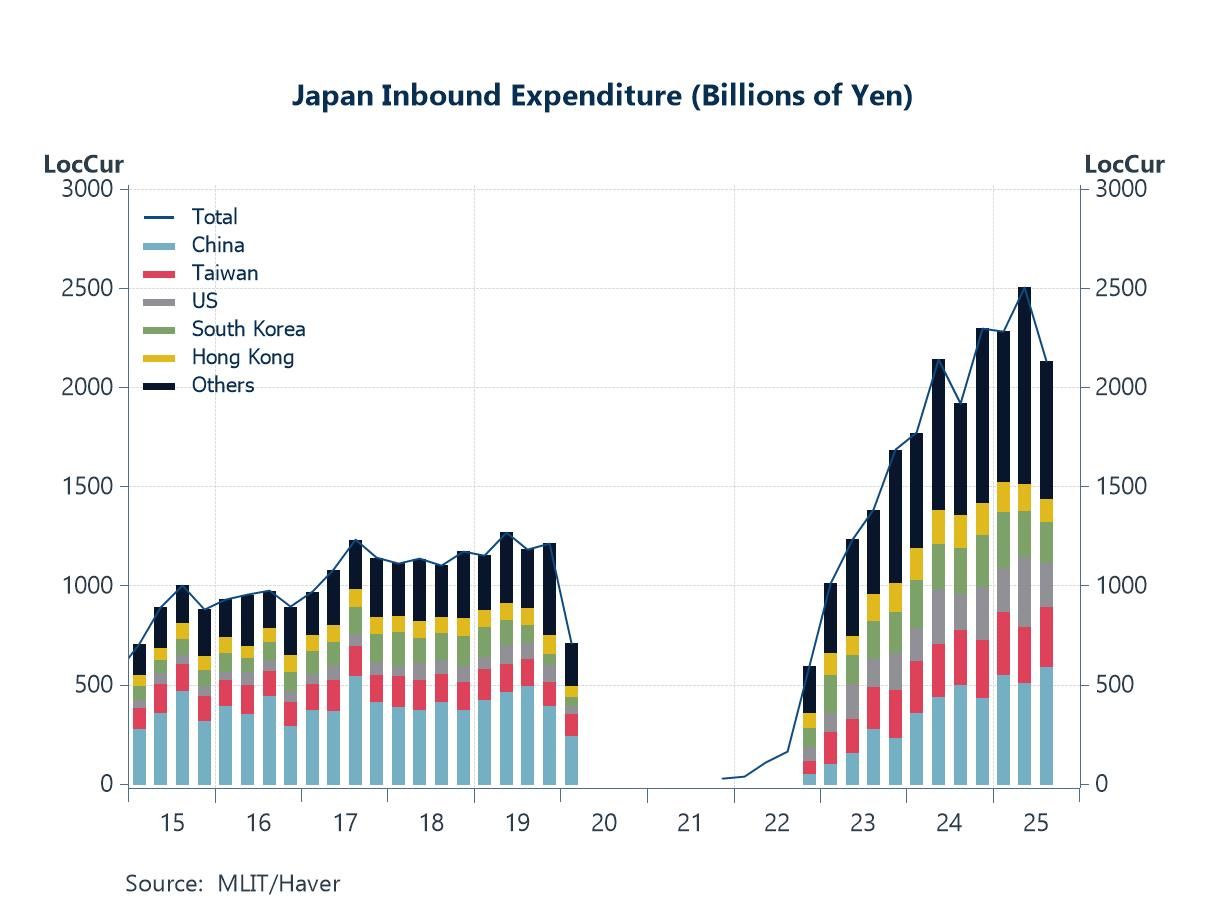U.K. CBI Survey - Retail Deterioration Reverses in March

A Confederation of British Industry (CBI) survey has produced significantly and broadly better data in its March survey, both for sales and orders in March and for expectations for the month ahead in April.
Comparing sales to a year ago in March, the reading relative to February was slightly weaker ticking down to a +1 from +2; however, both readings are leagues better than the January reading of -23 for sales performance relative to a year ago.
Orders compared to a year ago improved sharply in March to -2 from -25 in February and -32 in January.
Sales for the time of year in March moved up to a +12 reading from +6 in February and -3 in January.
The performance of stocks of goods relative to sales showed inventories at a + 10 in March compared to +8 in February and that compared to +23 in January. The stock-sales ratios data have to be analyzed in conjunction with the performance of sales trends. The notion that inventories are still improving and sales are improving can regarded as a positive development. The stronger increase in inventories back in January when sales were declining probably referred to unintended increases in inventories and that was not a positive or a strong reading at that time.
Looking ahead, expected April sales compared to a year ago have a + 9 reading compared to -18 in March and readings of -15 and -17 in the two earlier months.
Orders compared to a year ago have a net zero assessment in April; that compares to a -23 reading for March, -19 for February, and -23 for January. Once again, we see significant improving trends even though the net reading for April is only zero.
Expected sales adjusted for the time of year are at +13 for April, up from +11 in March and much stronger than -2 in February and +2 in January.
Stock sales ratios have a +6 reading for April, below 23 for March, 12 for February and 8 for January. But significantly, the reading is still positive and it's occurring at a time when sales are advancing more strongly and when orders are no longer falling.
In the far-right hand column, we can vet these readings for March for current data and for April for expected data compared to their historic trends. Even though we are looking at improvement, the state of the current readings is still relatively weak. Sales compared to a year ago have a 34-percentile standing, meaning that they have been weaker 34% of the time and stronger nearly 2/3 of the time. Orders compared to a year ago have a 41.6 percentile standing, closer to their median reading which occurs at a value of 50%. The time period being studied in this case is back to June 1998. Sales for the time of year are actually quite strong on this timeline; they have an 83.9 percentile standing indicating they are stronger less than 17% of the time. The stock sales ratio has an 18.5 percentile standing indicating that although positive it's still relatively low.
Turning to expectations for April, we once again find a slew of relatively weak readings with standings below their 50th percentile in all cases except for once again sales for time of year. Expected sales for time of year in April have an 84.6 percentile standing, quite similar to the standing for current performance in March. Sales compared to a year ago have 38.5 percentile standing and orders compared to a year ago have a 42.1 percentile standing; both of these are about equally weak below their key neutrality value of a 50 percentile standing. The stock sales ratio has a 13.7 percentile standing for its April expectations, slightly weaker than its current standing in March.
U.K. reports actual retail sales volume data through February; as of February, sales we're falling year-over-year by 3.5%, less weakness than the 5.1% 12-month decline logged in January. The 12-month percent change over the last 12 months has been on the order of 5% so U.K. real retail sales have been weak for some time. The queue standing for the U.K. retail sales series evaluates the year-over-year growth in sales volumes as at a 5.4 percentile standing – an extremely weak reading. This reading has been weaker only about 5% of the time. The CBI survey data are showing a lot more strength than that.

The improvement of the U.K. sales and expected sales and orders data is a surprise and, of course, comes at a time when there are all kinds of challenges to the U.K. and global economies. Inflation is still running extremely hot in the U.K., where the central bank is raising rates. The Bank of England still has a good deal of work to do because inflation in the U.K. continues to be high. While the U.K. does not display any particular vulnerabilities to the new banking sector problems that have arisen, that's something that also mixes in with this environment and could complicate policymaking in the period ahead. This report from the Confederation of British Industry on retailing is a surprise and is a breath of fresh air. Still, the queue standings in the table remind us that retailing is hardly out of the woods. It has made some significant progress from earlier months, and sales for the time of year are especially buoyant. But that's not enough for us to shift to full blown optimism.
Robert Brusca
AuthorMore in Author Profile »Robert A. Brusca is Chief Economist of Fact and Opinion Economics, a consulting firm he founded in Manhattan. He has been an economist on Wall Street for over 25 years. He has visited central banking and large institutional clients in over 30 countries in his career as an economist. Mr. Brusca was a Divisional Research Chief at the Federal Reserve Bank of NY (Chief of the International Financial markets Division), a Fed Watcher at Irving Trust and Chief Economist at Nikko Securities International. He is widely quoted and appears in various media. Mr. Brusca holds an MA and Ph.D. in economics from Michigan State University and a BA in Economics from the University of Michigan. His research pursues his strong interests in non aligned policy economics as well as international economics. FAO Economics’ research targets investors to assist them in making better investment decisions in stocks, bonds and in a variety of international assets. The company does not manage money and has no conflicts in giving economic advice.





 Asia
Asia
